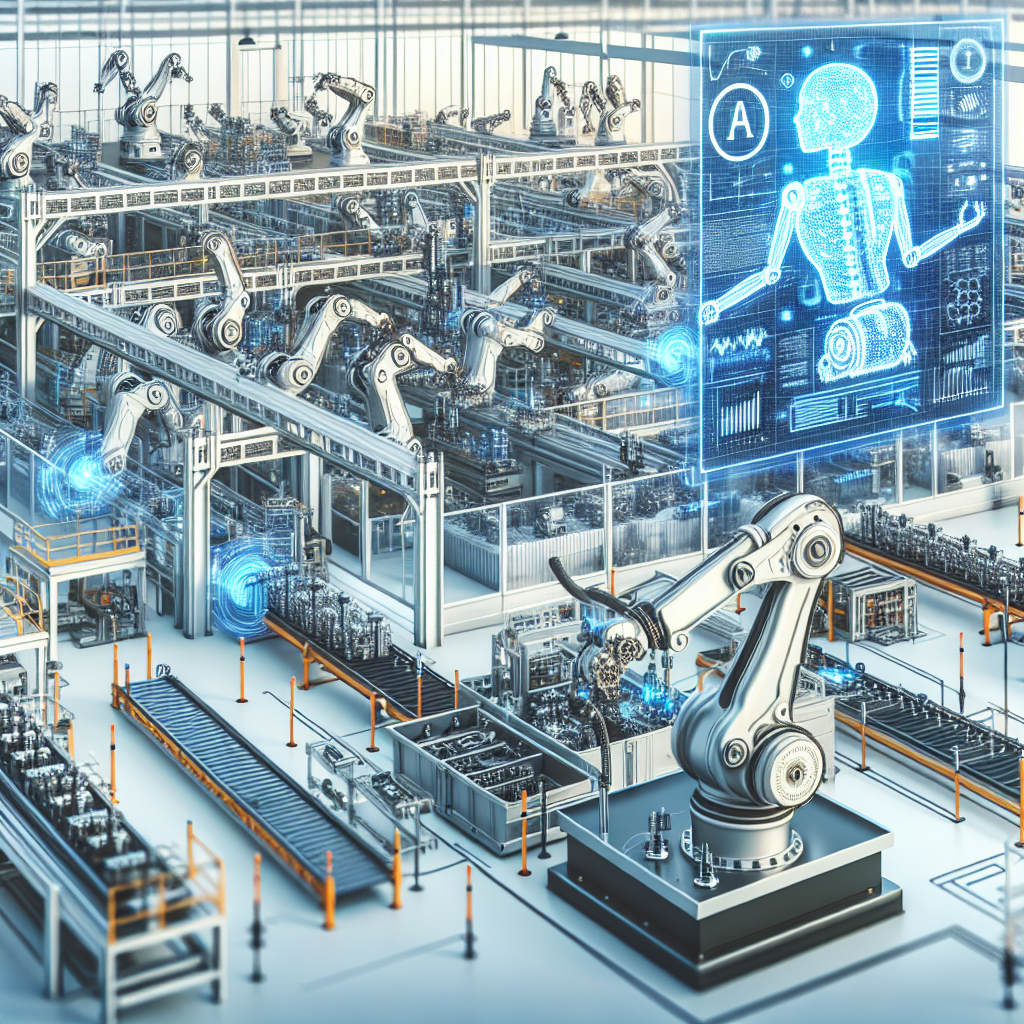Artificial Intelligence (AI) has been a game changer in many industries, and manufacturing is no exception. The integration of AI technologies in manufacturing processes has revolutionized the way products are designed, produced, and delivered to customers. AI has the potential to significantly improve efficiency, increase productivity, and reduce costs in manufacturing operations. In this article, we will explore the impact of AI integration in manufacturing and discuss the benefits and challenges associated with this technology.
Benefits of AI Integration in Manufacturing
1. Increased Efficiency: One of the key benefits of AI integration in manufacturing is increased efficiency. AI technologies can automate repetitive tasks, analyze data in real-time, and optimize production processes. This leads to faster production times, reduced downtime, and improved overall efficiency in manufacturing operations.
2. Improved Quality Control: AI technologies can be used to monitor and analyze production processes in real-time, enabling manufacturers to detect defects and quality issues early on. This helps to improve product quality, reduce rework, and ensure that products meet the required standards.
3. Predictive Maintenance: AI-powered predictive maintenance systems can help manufacturers anticipate equipment failures before they occur. By analyzing data from sensors and monitoring equipment performance, AI can identify potential issues and schedule maintenance activities proactively. This helps to reduce downtime, minimize repair costs, and extend the lifespan of equipment.
4. Supply Chain Optimization: AI technologies can be used to optimize supply chain operations by predicting demand, managing inventory levels, and optimizing logistics. By analyzing data from multiple sources, AI can help manufacturers streamline their supply chain processes, reduce lead times, and improve overall supply chain efficiency.
5. Enhanced Product Design: AI technologies such as generative design can help manufacturers create innovative and optimized product designs. By leveraging AI algorithms, manufacturers can explore thousands of design options, evaluate performance criteria, and identify the best design solutions. This leads to the development of products that are more efficient, cost-effective, and sustainable.
Challenges of AI Integration in Manufacturing
While the benefits of AI integration in manufacturing are significant, there are also challenges that need to be addressed. Some of the key challenges include:
1. Data Quality and Security: AI technologies rely on large amounts of data to make informed decisions. Ensuring the quality, accuracy, and security of data is crucial for the successful implementation of AI in manufacturing. Manufacturers need to invest in data management systems, cybersecurity measures, and data governance practices to protect sensitive information and prevent data breaches.
2. Skills Gap: The adoption of AI technologies in manufacturing requires a workforce with the necessary skills and expertise to implement and manage these technologies. Manufacturers need to invest in training programs, upskilling initiatives, and talent development strategies to equip their employees with the skills needed to work effectively with AI systems.
3. Integration with Existing Systems: Integrating AI technologies with existing manufacturing systems and processes can be complex and challenging. Manufacturers need to ensure that AI systems are compatible with existing hardware and software, and that data can be seamlessly transferred between different systems. This requires careful planning, coordination, and technical expertise to ensure a smooth integration process.
4. Cost and ROI: Implementing AI technologies in manufacturing can be costly, requiring investments in hardware, software, training, and infrastructure. Manufacturers need to carefully evaluate the costs and benefits of AI integration and develop a clear ROI strategy to justify these investments. It is important to consider the long-term value that AI can bring to manufacturing operations and the potential cost savings and revenue growth that can be achieved.
FAQs
Q: What are some examples of AI technologies used in manufacturing?
A: Some examples of AI technologies used in manufacturing include predictive maintenance systems, quality control systems, supply chain optimization tools, generative design software, and robotics and automation systems.
Q: How can AI improve productivity in manufacturing?
A: AI can improve productivity in manufacturing by automating repetitive tasks, optimizing production processes, reducing downtime, improving quality control, and streamlining supply chain operations.
Q: What are the key considerations for manufacturers looking to integrate AI technologies?
A: Manufacturers looking to integrate AI technologies need to consider factors such as data quality and security, skills gap, integration with existing systems, cost and ROI, and compliance with regulations and standards.
Q: How can manufacturers address the challenges of AI integration in manufacturing?
A: Manufacturers can address the challenges of AI integration by investing in data management systems, cybersecurity measures, training programs, talent development initiatives, technical expertise, and ROI strategies.
In conclusion, AI integration in manufacturing is a game changer that has the potential to transform the industry and drive significant improvements in efficiency, productivity, and quality. While there are challenges associated with AI integration, manufacturers can overcome these challenges by investing in the right technologies, skills, and strategies. By leveraging the power of AI, manufacturers can stay ahead of the competition, innovate their products and processes, and meet the demands of an increasingly digital and interconnected world.

